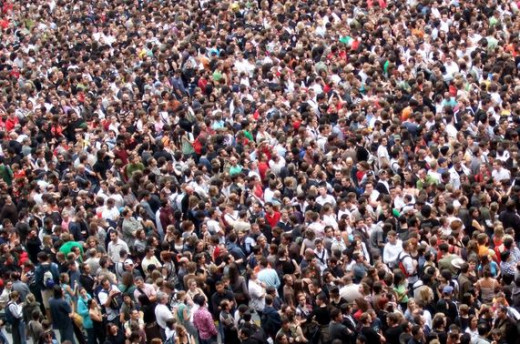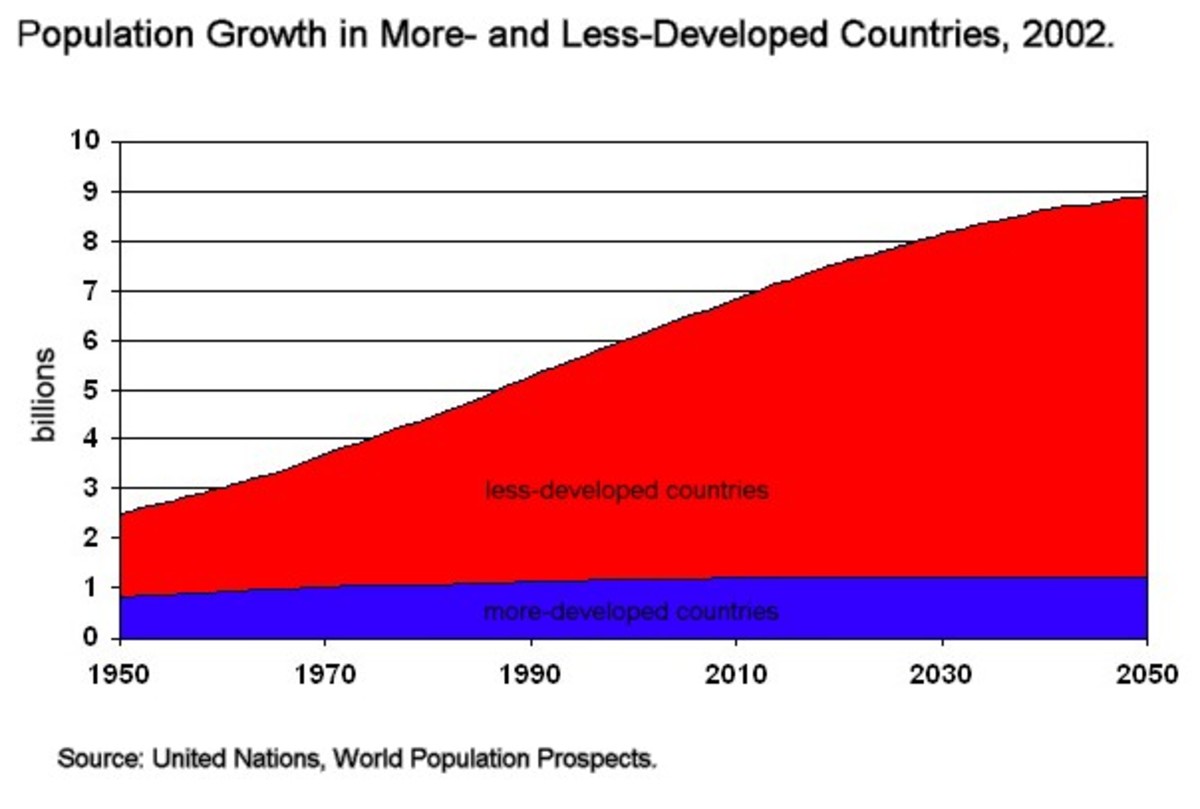Can Human Overpopulation Destroy The world?

What is overpopulation?
When the population of a region overgrows its optimum size, then overpopulation is said to have occurred. This means that the human population becomes too large to the point where the environment and available resources become insufficient to cater for the people.
Causes of overpopulation
There are three main causes of human overpopulation all over the world. These are:
- High birth rate: This is simply an increment in the number of babies being born. High birth rate is normally caused by things such as high fertility rate, teenage pregnancies, early marriages, etc.
- Increased immigration: When there is too much immigration inflow into a country, the population of that country is bound to increase. NOTE: While an increased immigration causes overpopulation in countries, it doesn’t cause an overall increase in the world’s population.
- Low death rate: This is where the death rate becomes low as a result of improved health facilities. It is obvious that the more people live longer, the higher the population growth is going to be, and vice versa.
Currently the population of the world stands at around 7.2 billion. According to the United Nations, the population of the world is currently increasing by 74 million people every year. At this rate, the world population is likely to reach the region of 9 billion by the year 2050. This means that as the years go by, the world edges closer and closer to a human overpopulation disaster.
But can overpopulation really destroy this world?
According to many experts, the answer to the question of whether overpopulation can destroy the world is a big YES. Many experts believe that the world’s biggest problem isn’t climate change but rather overpopulation. For example, in a 2011 report published by experts from the Institution of Mechanical Engineers, these experts categorically said they believed overpopulation posed a greater threat to this world than climate change. These experts, as well as many others, believe that overpopulation will lead to severe cases of insufficient resources which will in turn leave billions of people without basic human needs such as water, food, shelter, etc.
But why are these experts saying overpopulation or rapid population growth can destroy this world?
In order to understand where these experts are coming from, we shall now take a look at the dangers of rapid population growth.
Problems of overpopulation
While overpopulation might have one or two advantages for certain countries and people, there so far seems to be more disadvantages of overpopulation than there are advantages. Below are the major problems associated with overpopulation:
- Water shortage problems: Overpopulation is associated with water shortage issues. According to experts, when the population of the world increases beyond a certain number, more and more people are going to find it difficult getting adequate and fresh water for drinking, cooking, bathing, etc. Even now that the world’s population is only 7.2 billion there are cases of water crisis in many parts of the world. One can only imagine how severe these cases will become when the population of the world goes beyond 10 billion.
- Increased levels of pollution: As a result of a massive increase in population, there’ll be a massive increase in all sorts of pollution such as air pollution and water pollution.
- Land degradation problems arise with overpopulation: The more the population of the world grows, the more pressure there’ll be on the land leading to land degradation. As the population grows rapidly, the land is going to be disturbed in no small way. Forests are going to be destroyed for building houses, farming and for the construction of roads, hospitals, schools, industries, hotels, etc. This will lead to a severe loss of arable land and the extinction of many endangered species.
- High unemployment rate is another major effect of overpopulation: When the size of the population becomes too huge, more people are going to be looking for jobs making it impossible for employers of labor to provide sufficient employment opportunities for all these job seekers. The end result will be a high rate of mass unemployment.
- High crime rate: As a result of the high rate of unemployment brought on by overpopulation and resources that are extremely scarce, there’ll be an increase in crime rates. Unemployed people need resources to survive, and since there are no legal jobs available for them to do to get money, many of them will be easily compelled to engage in criminal activities such as armed robbery, fraud, looting, etc for survival. Crime will be so rampant that people will begin to no longer feel safe being on the streets or in their homes. In this case, governments will be left with two options – either spend more of their very scarce resources in strengthening the security forces and forgo other important things such as food for the starving people or governments can decide to feed the starving people with their scarce resources and neglect the safety of the people.
- Poverty and overcrowding of cities: Since rapid population growth is very synonymous to over crowdedness and poverty, it goes without saying that the more the population of the world grows, the more slums are going to spring up in communities and cities leading to an increased risk of epidemics, low life expectancy, unhygienic and indecent living conditions, etc.
- Mass poverty: As a result of mass unemployment and high dependency burden there’ll be mass poverty and general low living standards since basic human needs will be difficult to come by. Parents will be unable to take care of their children as a result of either being unemployed or being paid very low wages and salaries. People will be unable to get sufficient food to eat, good clothes to wear, and other simple modern comforts of life will be difficult to get. All in all there’ll be a severe deterioration in the living standards of people because the available resources are just not enough to allow for an acceptable standard of living.
- Pressure on social amenities: Overpopulation automatically puts intense pressure on social amenities such as schools, clinics, hospitals, public places of convenience, roads, etc. This will force governments to use their scarce resources to provide new ones while trying to maintain the existing ones which will be deteriorating at a very fast rate. Sadly, it’ll eventually get to the point where governments can no longer provide new infrastructures or maintain the old ones. The end result is that governments will be forced to abandon trying to provide new infrastructure or trying to maintain the existing ones and focus their limited resources on the most pressing needs of the people such as food, water and security. This will of course worsen the already deplorable state the citizens are living in.
- Rampant conflicts over scarce resources: Since overpopulation always makes it impossible for available resources to be sufficient enough to meet the massive demand, there is going to be rampant conflicts over the available scarce resources. The general hardships experienced by the masses will easily spark off conflicts and wars between groups, communities, regions, and even nations since each group will be trying to get more than its fair share of the extremely scarce resource available. A good example of how overpopulation and disagreement over the sharing of scarce resources can easily lead into warfare is the case of the Rwandan and Nigerian civil wars which occurred when these countries were facing serious overpopulation issues.
- Global warming is increased with overpopulation: A massive increase in the world’s population automatically leads to increase in air pollution or carbon dioxide being emitted into the atmosphere. These are great recipes for global warming. As the population of the world increases dramatically, there are going to be more vehicles on our roads and more industries being set up to employ more jobless people. Now, the more industries and vehicles that exist on Earth, the more carbon dioxide makes its way into the air and the more polluted the air becomes. Overpopulation also destroys trees through desertification and deforestation. As the population increases, more trees are going to be destroyed in order to put up buildings, construct roads, hospitals, schools, etc. Trees are very essential in keeping the air clean and the Earth safe. For example, trees absorb carbon dioxide and provide oxygen into the air. The destruction of trees coupled with more waste from industries and vehicles getting into the air obviously accelerate global warming.
Conclusion
The above are not the only harmful effects of overpopulation. There are so many more that I haven’t mentioned here. Looking at all these dangers we stand to face as the population of the world keeps increasing at an alarming rate, it is no wonder that experts are saying that overpopulation will likely cause the destruction of this Earth.








